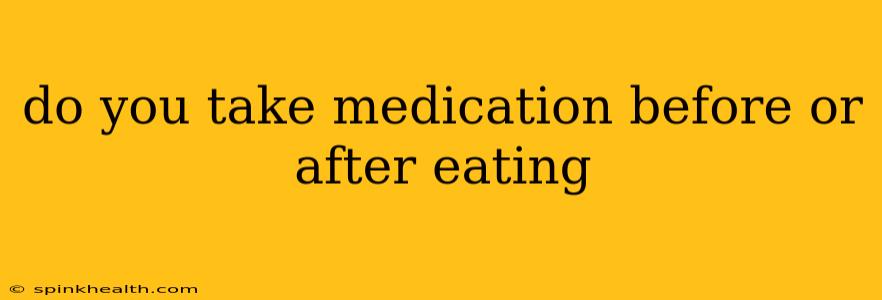Do You Take Medication Before or After Eating? A Journey Through Drug Absorption
The age-old question, "Do I take this pill before or after food?" is a common one, and the answer, unfortunately, isn't a simple "yes" or "no." Imagine yourself as a detective investigating a complex case – the case of medication absorption. The clues are scattered throughout the drug information leaflet, doctor's instructions, and even the very chemistry of the medicine itself. This journey will unravel the mystery, and by the end, you'll have the tools to become your own pharmaceutical detective.
Our story starts with understanding that different medications react differently with food. Some medications need the presence of food to be properly absorbed, acting as a sort of "chaperone" to help the drug safely enter your bloodstream. Others, however, can be hindered by food, leading to reduced effectiveness or even unpleasant side effects. It's all about the delicate dance between the drug's chemical properties and the contents of your stomach.
What Happens When You Take Medication With Food?
Food in your stomach can affect how quickly a medication is absorbed into your bloodstream. Sometimes, this delay is beneficial. For instance, certain medications can irritate the stomach lining. Taking them with food acts as a protective buffer, preventing nausea or stomach upset.
On the other hand, food can also significantly slow down the absorption of some medications. If a medication needs to work quickly, delaying its absorption could compromise its effectiveness. Imagine you need a fast-acting pain reliever – you wouldn't want food to slow down its journey to your bloodstream!
What Happens When You Take Medication on an Empty Stomach?
Taking medication on an empty stomach means it's more likely to be rapidly absorbed. This is advantageous for drugs that need to act quickly. But, as mentioned before, this might lead to stomach irritation for some.
Taking medication on an empty stomach also generally means there are fewer competing molecules to interfere with the absorption process. Your stomach is essentially a clear path for the drug. However, remember that this 'clear path' can also mean increased irritation for some medications.
Which Medications Should Be Taken With Food?
Many medications are formulated to be taken with food to minimize stomach irritation or enhance absorption. Always check the label! However, a doctor or pharmacist can provide personalized guidance tailored to your specific medication and health conditions. Some common examples often recommended with food include NSAIDs (like ibuprofen) and certain antibiotics.
Which Medications Should Be Taken on an Empty Stomach?
Certain medications, such as some antibiotics and antifungal drugs, are more effectively absorbed when taken on an empty stomach. Again, consult the medication instructions or a healthcare professional for accurate guidance. This is usually when rapid absorption is critical for the drug's effect.
Can I Take Medication With Just Water?
Water is usually the best choice for taking most pills or capsules. It helps the medication travel down smoothly. Avoid taking medication with certain drinks like grapefruit juice or milk as these can sometimes affect how well the medicine works.
What If I Forget to Take My Medication With Food or on an Empty Stomach?
If you forget to take your medication as directed, don't panic! However, it's crucial to consult the instructions provided with your medication or contact your doctor or pharmacist for personalized advice. They can assess the situation and offer guidance on what to do. Don't attempt to adjust your dosage without professional guidance.
What are the potential consequences of taking medication incorrectly?
Incorrect timing of medication can lead to decreased effectiveness, increased side effects, or even drug interactions. Always follow the instructions meticulously. Your health depends on it!
In conclusion, the best time to take medication is always determined by the specific medication and your individual health circumstances. Consulting your doctor or pharmacist is the key to unlocking this mystery and ensuring you get the most out of your medication safely and effectively. Always remember – your health is a priority, and understanding your medications is a critical part of safeguarding it.

